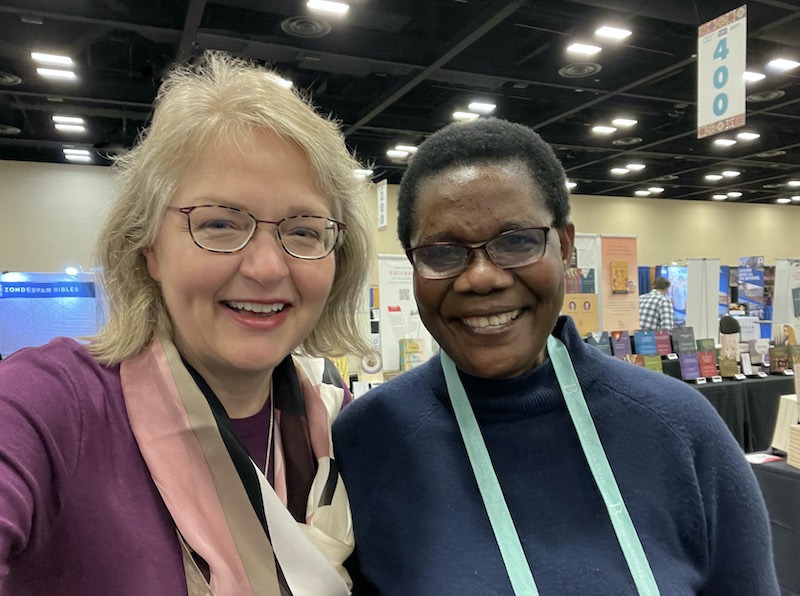For the past couple months, I’ve had a remarkable Bible scholar staying at my house. Milly Erema has been teaching Old Testament for the past 20 years at Uganda Christian University. You’ve actually heard me quote her several times in my books, along with other Africans and Asians who I consult for their non-Western perspective.

A Living Cultural Encyclopedia
Milly Erema is a living Bible culture encyclopedia. She has enormous amount of insight because of growing up in a traditional Eastern African village in northern Uganda which still follows customs related to those of the Middle East.
Harvesting? Winnowing? Sacrifices? Stoning? Polygamy? Levirate marriage? You name it, she has personal experience with it. Yet because she has a Ph. D. in Old Testament, she has some scholarly discernment about what customs are likely related and what are not.
My recent article, “Was the Law of the Rebellious Son Actually Progressive?” is based on her comments. Like most Africans, she lives in a traditional patriarchal culture. One universal assumption is that a father has life-or-death authority over his children. When Milly reads this law about parents taking a defiant son to community leaders for punishment, she sees it as limiting the response of an irate father, who in her culture has the right to take the life of his son. See the article for more.
Milly says that Christians in Uganda find the Old Testament just as applicable and authoritative as the New Testament, if not more. They also don’t stumble over many ideas that we do because they live in a similar reality themselves even now. You can imagine that our conversations are fascinating.
Milly was visiting the US for medical needs, but since she was staying with me and I usually go to scholarly conferences in November, I brought her along. We attended two conferences, the ETS (Evangelical Theological Society) meeting and the SBL (Society for Biblical Literature) meeting. We went to one session where she inputted several points that caused a shift in the discussion of a panel of well-known Bible scholars. I’ll try to write about that soon.
Update (1/24/22):
(Milly went home on December 20th.)
Above I talked about how Milly impressed a panel of Bible scholars at one of the sessions we attended. The latest news is that one of the session coordinators contacted Milly and invited her to speak next year!
What we attended was called “Difficult Texts of the Old Testament: A Workshop Approach” at the Institute for Biblical Research meeting. They are studying a different text each year for three years, from 2021-2023. The session we attended was on Genesis 9:20-27, Noah and the curse of Ham. Next year it will be on Exodus 4:24-26, when Zipporah circumcises her son and calls Moses a “bridegroom of blood.”
Milly will be one of three presenters. Others will look at the exegesis and intertextuality of the passage. She will discuss the culture/context of the passage. She is currently researching the significance of blood and circumcision in traditional East African cultures and how it relates to the passage. She says that her own Lugbara tribe does not do circumcision but she has colleagues from other tribes who do. One of her graduate students wrote a paper on the practice in his tribe. So she is actively interviewing people who have first hand knowledge. Fascinating!
Todd Bolen says
What a blessing to have such extended time with Dr. Erema! I look forward to a future post(s) about more of what you have learned.
Lois Tverberg says
Thanks, Todd! See my update above that she was asked to speak next year at the IBR conference!
Anne says
Awesome I can’t wait to read about the swayed conversations and it’s awesome that she didn’t hold back her perspective. It sounds they were open to her comments which is refreshing too.
David says
Thank you Lois! As one who is involved for many years in the Uganda culture, we often have a tendency to consider those of certain nations and cultures as somehow inferior. Thank you for sharing your friendship with Dr. Millie at the conference. Together we can come to better understanding of the Scriptures because we accept and entertain the insights of differing cultural perspectives – all of equal insight and revelation!
Kat says
Where are Dr. Millie’s books found?